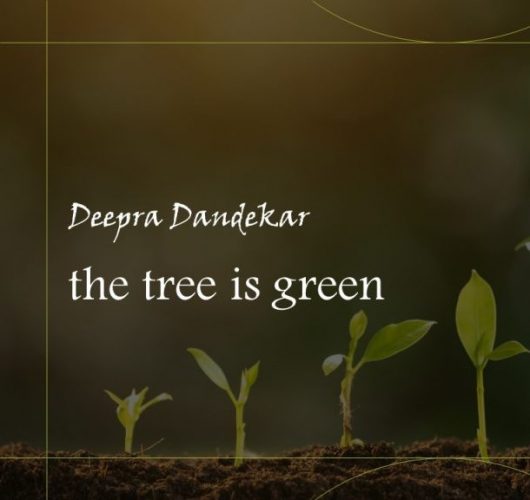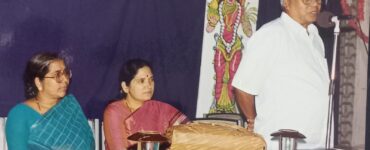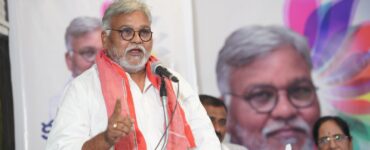India enjoyed a greatly positive relationship with Russia in the 1960s and 70s, and the USSR in everyday parlance was just another way of referring to Russia, though technically, everyone knew that the USSR consisted of many other countries. India’s relationship with USSR-Russia was sweet, at least for the intelligentsia, for India depended on and emulated the USSR, rather than neighbouring China (for Mao was indeed feared) for its own socialist model. This was before globalization heralded access to global Western markets, preceded by the breakdown of the USSR, Gorbachev’s Perestroika and Glasnost in the 1980s that thwarted the communist party, and resulted in the unification of Germany. Its symbol, the wall between East and West Germany was dismantled almost overnight in a huge surge of tremendous optimism. Though all these events heralded a new global beginning, they also whittled away the earlier Indian-Soviet relationship. Despite this, sweet memories from a socialist time lingered on in India, at least among the intelligentsia that had experienced socialist freedom, without ever needing to undergo the torture of communist dictatorship. They had only heard of state excesses from colleagues and friends who had travelled to India from the USSR, and who tried to escape the USSR by either going underground or by marrying non-Soviet partners.
The stigma of once being Soviet continued to haunt post-communist countries in Europe that now joined the global western market with the dream of being treated as equal partners. What was the sweet nostalgia of socialism in India, saw its shadow side of anti-Soviet suspicion emerge in post-communist Europe, where erstwhile East-Europeans faced discrimination as lesser evolved global citizens – a variety of discrimination among white Europeans that was mixed, of course, with pre-communist biases that considered Germanic, and Western European imperialism that had once controlled erstwhile Eastern Europe, as being of superior stock.
The nostalgia of USSR-Russia (for my own parents were indeed University employees) retained the old sweetness for me, though I also became more realistic after migrating to Germany. I came to appreciate the suffering of what life in the USSR may have entailed for dissenters of the communist state. It was in Germany that I first met many who had belonged to erstwhile Warsaw Pact countries (mostly the GDR, Poland, Czechoslovakia), who decried the erstwhile Soviet regime, even as they struggled in the West with the discrimination of being marked by their old association with the USSR! And yet, it was with these friends from the post-communist context that I also experienced maximum affinity, as a sharer of the USSR’s brighter idealistic side that was experienced in India – a luckier, but distanced sister, who had escaped the punishing side of her parents.
I must thank my school in Delhi (Springdales) for generating this nostalgia for Russia. My school celebrated historic India-USSR alliances intensely, and I remember participating in many group-song and solo performances at the USSR and the GDR embassies during my school years. Our school song book was full of what my father called ‘comrade’ gaan (songs), that celebrated the friendship of principles between Lenin, Pushkin, and Nehru.
There was no place for religious or caste discrimination in Springdales, and poverty was sought to be alleviated with children of all our non-teaching employees at school, studying with us as classmates. Perhaps naïve, but ‘equality’, ‘fraternity’, and ‘unity’ was our anthem in Springdales – our motto vasudhaiva kutumbakam – the world is a family, emblazoned on all school publicity materials. Our school founder and principle for many years, Mrs. Rajni Kumar who has just celebrated her 99th birthday, was a lady of Irish descent with a strong leftist orientation, and we often hosted many esteemed persons from within leftist leadership cadres as guests at school, who appreciated our support to political movements struggling against discrimination.
Most important was the emphasis on Russian language learning at school. There were several Russian school mistresses at Springdales, and classes for students wanting to study Russian overflowed. I joined Russian too, before switching to German – the only other foreign language taught at Springdales. Being slightly dyslexic, I found Cyrillic confusing. And yet, I learned some basics of Russian that I still remember fondly…“Eto Lina, Eto Tom, Eto Mama…” (this is Lina, this is Tom, this is Mama). Though German teaching at Springdales also drew heavily from the GDR till the end of the 1980s, the language was still, closer to English and used the Roman script. But I could not give my heart to German in the same way as I did to Russian.
Germany had become unmarked by the end of the 80s – part of the general Western world, part of America. It’s Western parts had always had that unmarked quality to it in any case, depicted as a place where consumption of cars, beer, pork, or football was ceaseless. If not that, then there were the stiff black and white images of Hitler, who I was also sure back then, consumed cars, pork, beer, and football ceaselessly – till I later learned that he had turned vegetarian to control his embarrassment with excessive flatulence.
But Russian was different, because Russia was a society that seemed closer to India. A known world of workers, humble joined families, class revolution, an ideology of freedom, farming collectives, nascent industries – it was all that ‘Indian development’ stood for in the 70s and 80s. There was Madam Valentina at Springdales, who taught us Russian with her auburn hair piled precariously on top of her head in a bun. And her lessons were thankfully, not about the ceaseless consumption of cars, pork, beer, football, or Lenin (or any other political leader) either. Her lessons were about poetry and philosophy that treasured the quest of human dignity within collectives – an emotion I found centrally etched in the writings of Maxim Gorky. Gorky’s ‘My Childhood’ was the first Russian book I ever read, presented to me by my father on my 10th birthday.
Russia became a large snow-clad place of poignant beauty in my mind that held out hope of change for a dreamy Indian girl like me who came from a humble background – a future path of equality and love. Though all this was criticized as propaganda by sceptics, I thought, wasn’t a variety of propaganda normal when one was missionizing for change? Didn’t ideologies always present their best faces to the world, to survive, and to take root within human hearts in its most healthy form? Didn’t truth always depend on personal experiences, and the way in which these experiences guided one towards abstract knowledge?
There was a song Madam Valentina taught us in Russian class, that had become popular in the mid-1960s:
Poust vzegda boudyit solnse…May there always be sunshine!
Poust vzegda boudyit nieba…May there always be blue skies!
Poust vzegda boudyit mama…May there always be Mama!
Poust vzegda boudou ya…May there always be Me!
As I watch Putin ploughing through Ukraine with a sledgehammer, as if maddened by post-Soviet victimhood – of how Russia was unequally treated in the West that made returning to pre-Soviet imperialism the only solution for a future Russia, determined to retrieve its lost grandeur that communism had destroyed, I remember Madam Valentina at Springdales. She was happy to escape communist totalitarianism in Russia after all, but this escape had been a blessing in more ways than one. This escape had also allowed her to treasure what was most beautiful about socialism, once she was on foreign but friendly soil – India, where socialism had a home in those days. For her, the most beautiful part of socialism was freedom, and I think today with gratitude about the optimism of those songs she taught us, while celebrating the quiet tranquillity of a socialist ideal that was without dictatorship.
As I look on in horror at an almost-insane Putin, his heart black with hatred and rage for the West, and for the way the West treated post-Soviet Russia in the global market, a solution to the war seems as yet, distant. Its quelling has an important pre-requisite. The West first has to accept their mistake of treating post-Soviet Russia unequally. And only then, can there be some peace. I can only hope and continue in my naïve optimism for this peace – a haunting desire engraved in the songs of my childhood.
My heart breaks for beautiful Russia!
*









Beautiful.